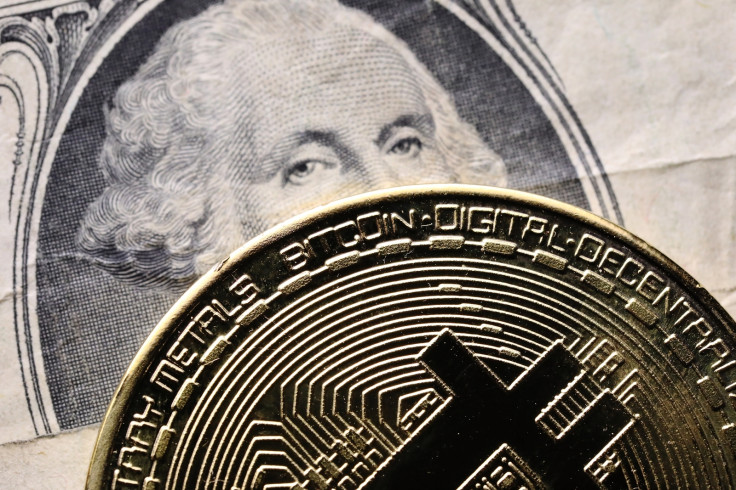Cryptocurrency regulation is inevitable – and this should be welcomed
Nigel Green, founder and CEO of deVere Group, says it's time to close crypto's regulatory vacuum.

Cryptocurrency regulation is coming - and this should be championed even by those who are currently cynical about the likes of Bitcoin. The world's largest cryptocurrency by market cap was launched in 2009 and since then many other digital tokens have been introduced, perhaps most notably Ethereum, Ripple, Litecoin and Dash.
The industry grew exponentially in 2017 and the year ended in a Bitcoin frenzy, having skyrocketed by more than 1,300% to more than $14,500 by 29 December.
Whilst it would be fair to say that nothing grabbed investors' attentions quite like crypto last year, it would also be fair to say that, despite it now being a sector worth more than $700bn, it has to date operated in something of a regulatory vacuum.
However, I hope and believe that this will soon change as international financial watchdogs respond to the growing interest in and popularity of cryptocurrencies.
Naturally, different countries around the world are taking their own view and measures on cryptocurrencies.
The Wall Street Journal has this week reported that the U.S. Securities and Exchange Commission (SEC) has launched a probe into cryptocurrency business, issuing an undisclosed number of subpoenas and information requests for various firms. However, on a state level, legislation is being introduced that would relax certain controls on cryptocurrencies. For instance, Wyoming has passed legislation that completely exempts tokens from securities regulations if they meet a short list of requirements.
Last week, the UK's Treasury Committee commenced an inquiry into cryptocurrencies to investigate their benefits and risks and to assess how the new technology could be regulated.
Meanwhile, South Korea's Finance Supervisory Service (FSS) has signalled the government's co-operation in plans for self-regulation; the Swiss Financial Market Supervisory Authority (FINMA) has announced it is to treat some cryptocurrency offerings as securities; the Securities and Exchange Commission of Zambia has issued a public notice on cryptocurrencies; and Spain is reportedly drafting legislation that will help attract cryptocurrency and blockchain companies to the country.
Last year, Australia followed Japan in moves to regulate 'alternative coins' after Tokyo introduced new rules bringing them under the supervision of its Financial Services Agency from October 2017.
This increasingly proactive approach by the world's financial regulators must be a welcome step in the right direction for many reasons.
First, more and more people are becoming aware of and developing an interest in cryptocurrencies. I'm confident we can expect demand to continue to soar in the next decade as scalability issues are being improved to bolster the transaction processing capacity. Also, precisely because financial regulatory bodies around the world are increasingly looking to regulate cryptocurrencies, which will give investors even more protection and confidence in the market.
In addition, another primary driver for demand is there is a rising desire for non-government and non-central bank-controlled currencies. People want privacy, and with digital currency, they can have it. There are no obligations to share identity or location information, or indeed transaction details. It is totally decentralised. So much so, many cryptocurrency supporters claim digital currencies are the right to the traditional system wrongs.
Second, as in any industry there are rogue elements, and regulation will help protect both retail and institutional investors from scammers.
Third, robust rules will be the most effective way to combat cryptocurrency criminality. It has been widely reported that this remains a big, if not the biggest problem. For those who shrug this off, one only has to look at the case in Greece where a man was arrested in June 2017 for money laundering $3bn using digital tokens.
Indeed this week, billionaire Microsoft founder Bill Gates said, "Right now cryptocurrencies are used for buying fentanyl and other drugs so it is a rare technology that has caused deaths in a fairly direct way." In my view this is fairly extreme. We can be confident that dollars, pounds and euros have been responsible for deaths too. There are legitimate concerns about cryptocurrencies as there always are with new technologies. But this should not mean that we don't progress and evolve. It simply means that we need tougher checks and more robust regulation. Let's not forget that previously there were similar concerns about the advent of internet and, more recently, about driverless cars.
Fifth, with fit and proper regulation there will be less potential risk there for the disruption of global financial stability, and the more potential opportunities there will be for higher economic growth and activity in those countries which introduce it.
Arguably, one of the best ways to address the regulatory issues is via the exchanges.
Nearly all foreign exchange transactions go through banks or currency houses and this is what needs to happen with cryptocurrencies. When flows run through regulated exchanges, it will be much easier to tackle potential wrongdoing, such as money laundering, and make sure tax is paid.
For this to happen, banks will need to open accounts for exchanges, which is why they must be regulated.
For these reasons I have stated earlier, even cryptocurrency critics – including Bill Gates - should welcome the many diverse efforts of regulators worldwide.





















